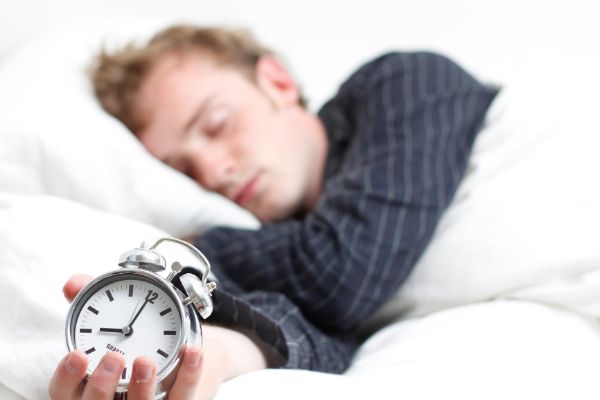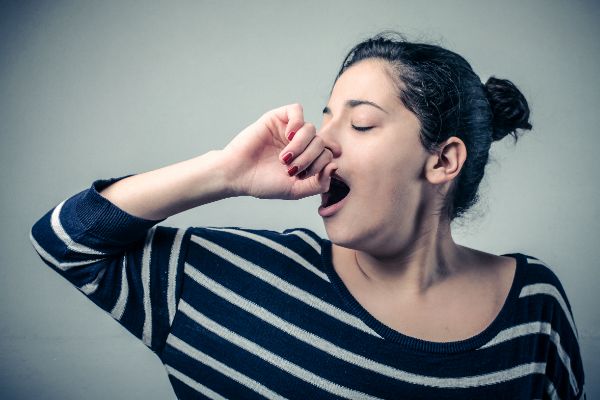Insomnia is a cruel enemy. Even if it’s not taken that far, the very fact that you’re struggling to fall asleep and that tens of minutes, sometimes even a couple of hours, drain by in your attempts and piling up tiredness guaranteed for the next day… well, it sucks. For this reason, even if you don’t have insomnia, the fact that you’re taking so long to fall asleep is bothersome in itself. The question that should be asked is no longer “How do I fall asleep?” and it becomes a matter of how to fall asleep fast.

The solutions might be a lot more surprisingly easier than you’d think, but this is because the general causes of insomnia are considerably formulaic and easy to fit into a patterned scheme. Just like the way parrots go to bed when you cover their cage to make it dark, we have our own little “blankets” that tell the brain “Okay, it’s time to sleep.” It’s all about knowing how to fall asleep fast, really.
How to Fall Asleep Fast Strategies
#1 Turn Off Devices
Although sometimes formulaic, the process of how sleepiness is induced remains a complex one. But the simple explanation is that as it gets darker outside, our brains reduce a set of hormones which tell us that the time has come. Not only that, but these hormones also make us physically number, so we get tired and feel the need to crawl to bed and catch some ZZZ’s.
This is where the confusion might interfere when determining how to fall asleep fast. Our bodies haven’t exactly adapted to the digital era. As long as there is a source of light still affecting our eyes, the hormone-releasing process isn’t going to work properly. Being near any sources of light such as TV’s, computers, or phones tricks the brain into believing that nightfall hasn’t dropped yet. As such, it might even take one extra hour of trying to fall asleep after using an electronic.
This means that, yes, you should try cutting off connections with computers, phones, and TV’s at least one hour before going to bed. This way, your body has enough time to register the fact that it’s dark outside and that it’s tired. How To Fall Asleep Fast 101.
#2 Hot Skin & Cool Room
Noticed how pleasant the sensation of flipping your pillow around and resting your head on the cool side is? As far as creating sleeping-friendly environments goes, coolness is your best ally. So, here is what you can do: take a hot bath around half an hour before you go to bed. This alone is a vital step forward in prepping your body for a good night’s sleep since it accentuates the feelings of sleepiness.
While you’re having fun in your bubble bath, take the time to cool down your room. Turn on your air conditioner during summer or leave an open window for all the cold to creep inside during winter. When you crawl up in bed, you’ll end up feeling sleepy because of the hotness of your skin. You’ll know how to fall asleep fast like an infant because of the soothing effects of your cool room. After all, we dare you to tell us that there is a better feeling than being snuggled up under your blanket as a chilly breeze washes over you.

#3 Stay… Awake
That seems a bit strange, doesn’t it? But it’s one way to know how to fall asleep fast. If the exact time when you go to bed doesn’t matter that much to you and the main goal here is simply to drift off to sleep as soon as possible, then you might want to try this method. In order to fall asleep, you need to be sleepy first. This is why this might all be so ever frustrating. You might want to sleep, but what if you’re not sleepy? Paradoxically, you can solve the issue of taking ages to fall asleep by actually delaying the hour at which you close your eyes and begin your journey to dream land. When you really think about it, it’s nothing but reverse psychology.
Scientists consider sleep to be one of those things that the more you try to avoid, the more difficult avoiding it actually becomes. If you happen to start feeling your eyelids a little bit heavy, don’t just stop there. Force yourself to stay awake for another half an hour, to the point when you can barely keeping your eyes. It might sound extreme, but there really is no turning back from that point. By the time you rest your head to sleep, you’ll be worn out enough to instantly hit the body’s snooze button.
#4 Release Your Mind
For the most part, the biggest reason for insomnia and sleeping problems is anxiety. It’s really easy to fall down the route of overthinking things and filling your head with gloomy thoughts at night and the buzzing of our own thoughts is often what keeps us awake and mildly nervous. Naturally, the only way to deal with this and banish these intrusive thoughts is by emptying your head, which might sound like an “easy in theory, hard in practice” situation. It’s not like that.
One simple way to keep your mind off random scenarios and thoughts is by allowing it to drift into darkness. That sounds ominous, but it’s not that intense of a thing. Alternatively, since we’ve mentioned reverse psychology previously, it might be a good choice to pick it up again here too. Imagine a wall painted in a solid, bright color and try to stay focused on it. You will notice that it’s a pretty tiring feat, so the more you force yourself to picture the said color, the more tired your mind will become.
#5 Get Up
We’ve grown to associate our beds with sleeping. The moment this isn’t a reality anymore is the moment when we have a problem on our hands. Spending 12 hours a day in your bed, out of which only 7 are reserved for sleeping might actually make it more difficult for you to get a proper night’s sleep or, rather, to fall asleep to begin with. This is because the bed loses its reward value and knowing how to fall asleep fast becomes more difficult.
There are few feelings in the world as pleasant as the feeling of collapsing on bed and snoozing off after a tiring day. By spending time in bed doing all kinds of other activities, it becomes less of a space that tells the brain “time to sleep” and more of a space that tells the brain “time for activities.” So, when you’re having trouble falling asleep, try sleeping getting up and leaving it. Go do an activity that keeps your mind or hands occupied, such as reading, drinking a glass of water, playing with a Rubik’s Cube, etc.
How To Fall Asleep Fast: A Conclusion
Release your mind, have a nice bath, cool your room, and try some reverse psychology. Once you’re in control of it, you’ll know exactly how to fall asleep.
